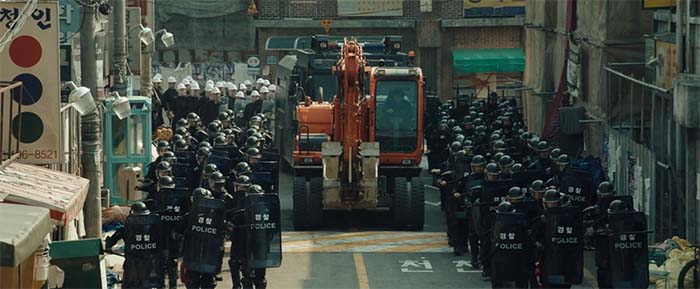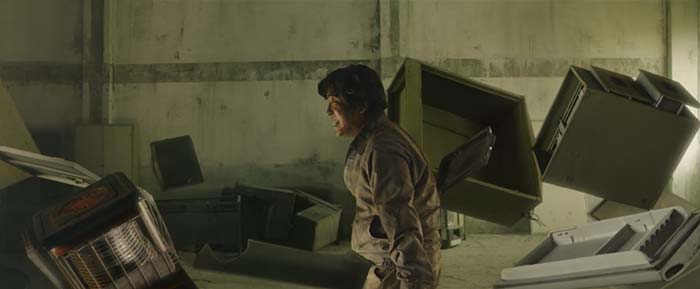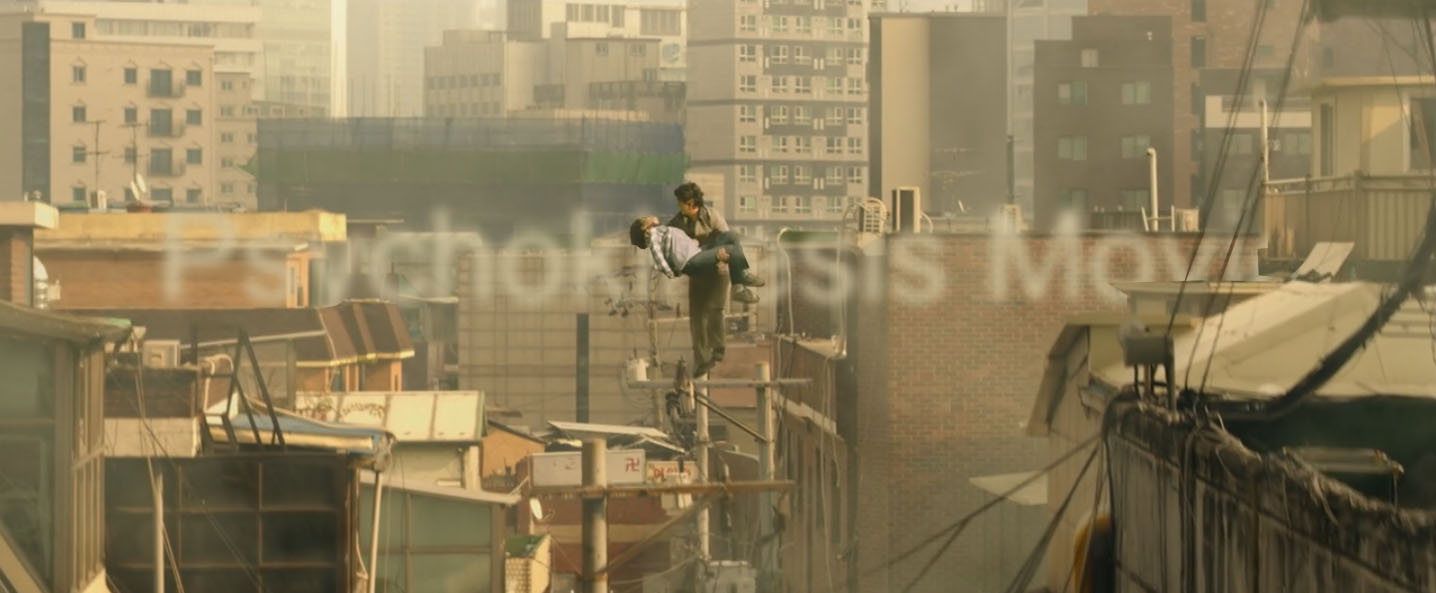Why Psychokinesis is a Better Way to do Super Hero Movies
I dislike most super hero moves. Sure, I’m a Nolan fan, and nexused with a dying love of Batman, made me a huge fan of his Dark Knight movies. But otherwise? Not so much. Why? Because you can’t character develop a god. They are already perfect – or nearly perfect. And so the story arc is lame at best. So I regularly speak out against this recent trend of Hollywood’s making billions off of super hero movies. I just don’t care a lick.
But there are a few notable exceptions. The first? Chronicle. I absolutely loved Chronicle. And what about a little more divergent take, like Radius? Or better yet? Movies like Primer? Why? Well, Shane Carruth, if he were here, and would actually let me interview him – COUGH – he would tell you that his movie isn’t a super hero movie, or a special effects movie. But rather, his movie is a disussion of the question – what would unadulterated power do to a friendship? How much is too much power and what would be the results? Similarly… Chronicle goes in that same direction. Or maybe, sort of, Z for Zachariah? Regardless, you get my point. Characters and character growth is what drives compelling story telling. Demigods throwing each other through buildings? Not so much.

Which brings me to Psychokinesis. A crazy cool little Korean movie about a father that inadvertently becomes a super hero. Wait, rrrrrt, rewind… a what? (Yes, I just did the sound effect of a record scratch… I know cool, right? Tap, hello? Hello?) IN A WORLD, WHERE A DAD. BECOMES. A. SUPER. HERO. hahah. Yeah, that’s what I thought when I first heard the idea. But seriously, here’s the official synopsis of the movie:
After drinking water from a mountain spring, a bank security guard gains telekinetic superpowers, which he must use to save his estranged daughter from an evil construction company, as a superhero.
But this doesn’t fit the normal stereotypical Hollywood superhero cliché! Down and out American is dying to get into WWII, but he can’t pass the physical! Until! He’s conscripted into a secret government research program to turn him into… (collective orgasmic gasp) CAPTAIN AMERICA!! And yippey! He’s here just in time to stop the rise of mutant super Nazi’s and RED SkULL!! PHEW! (Ok, maybe I’m pouring it on a little thick. It wasn’t a horrible movie. But really?) Here though, I have something entirely different for you:
So we have a disconnected father, and a daughter in trouble. And a random arrival of a super power? Huh. Ok. So where is this thing gonna go? And yeah, it has the standard characteristic optimistic view. And yeah, the CG isn’t perfect. But they do some pretty surprisingly cool special effects as well. And I actually found myself enjoying them for their rareness, and cleverness. Alright, so, yeah. I give Psychokinesis my stamp of approval.
But before I send you off to see the movie, and I continue on with spoilers, I will say this… I stand by this belief that most Americans are so myopicly in bed with English, that it surprises them when they have to work at anything translation-wise. To wit, just multi-lingual packaging causes some Americans howling fantods. Better yet, hand them a movie that looks American, that turns out to be dubbed from another language?? (Which, I literally do not, in the least understand. Dubbing is a crime against humanity.) Or worse? “Taylor, I cannot read my movies. That is not entertainment.” Then A) learn the language in question and experience the movie in its full intended splendor. Or B) read the subtitles. Or C) remain ignorant of other cultures, other peoples, other wonderful cultures. And obviously, the choice of most Americans is, without a doubt, the latter. I know because every, single, time, I recommend a foreign language film, “non-racist” readers inform me of their lack of racism, and their lack of desire to watch foreign films. (Wanna talk about howling fantods…)
So yeah, in a word, subtitles.

Spoiler-Filled Walkthrough of Psychokinesis
Alright, please go see the film. By hook. Or by crook. I don’t care how. (Nevermind that its currently on Netflix.) Just watch it. Then come back and partake in our discussion of all things Psychokinesis.
As the movie kicks off – I have to admit, I was wondering if I was missing a cultural nuance to the Korean life. Men in hardhats were attacking a shop and trying to get a woman to leave. Is this a cultural celebration? A reenactment? But then I realized it was just an editorial choice. Hehe. Apparently, a large corporation was hoping to build an enormous duty-free shop where this woman’s noodle shop currently stands. And in the tussle and the chaos of this confrontation, Roo-mi’s mother dies.
And in this same moment, miles away, her husband Seok-hyeon, drinks water from a stream in the forest that has been contaminated by some comet that had just fallen from the sky. We’ll talk about theories here later. But for right now… he quickly begins to feel weird as a result.
Soon he realizes that he has some sort of weird power, a power that he assumes he should use as a magician for personal gain. But when he reconnects with his daughter upon finding out about his wife’s death all of that side hustle business is set aside. But why are Roo-mi and Seok-hyeon estranged? Well, as Seok put it, he left because of money. He chased a business deal, became the guarantor on a loan that went toes up and has been estranged for good as a result. It’d be interesting to hear the cultural context for this separation. Is this a pretty standard story? Is it a thin excuse for something else? Because I would assume that he is lying here if this was an American story. But here? I definitely believe him. It’d be nice to hear from pleasant Korean passers by more about this, and if I should believe him.
Most of the movie is about the struggle between Roo-mi and her desire to fight the construction company and Seok’s desire to keep his daughter safe. But when a mob attacks the neighborhood block resistance, Seok jumps in and begins tossing invaders left and right for distance. And with that Seok is 100% involved as the neighborhood’s hero. Which causes jealousy and confused feelings for a daughter that feels abandoned by her father.
“Maybe I’ve been given this ability to be a good dad for a change…”
We walk through some of the standard movie hero tropes as the arch-villain, Hong Sang-moo, brings them in and talks to them. There are more scuffles. One of my favorite scenes is when the bad guys try to convince the authorities that Seok has super powers and the police don’t believe them. They are sure that the footage is faked. Which, is probably how this would happen in real life. But eventually the relationship between Seok and Roo-mi progresses as Roo-mi attempts to work through her feelings about this guy she knows nothing about.
From here we have a pretty fascinating conversation between Hong – the head of the evil corp. equivalent – wherein she lets Seok know his place. “Those with super powers are not like us. They were born to win. Everyone else, like you and me, are slaves to society. Why can’t you accept it? Know your place please. Thats the lesson your daughter will also learn from this.” But after this conversation, Hong gives him her business card, and in a pretty cool move, Seok crumples her business card, and with it her Mercedes.
Eventually he goes to prison on allegations of some sort or other. But when he sees the fire by Roo-mi’s house, he breaks out in order to try and defend her. He flies his way there in a bouncing careening craziness. Which, was a fantastic bit of special effects I must say. And then after an inevitable battle, Sheok turns himself in. And when its time for him to get out, the lawyer friend of Roo-mi’s gets him out. Then when the father goes to see his daughter, he sees that his daughter has rebuilt her noodle shop. And the movie ends with Seok delivering beer by levitating it out to Roo-mi’s customers.

Questions about Psychokinesis
What was the comet that fell from the sky? The timing between Seok’s wife’s death and the comet seems to be anything but coincidental. Personally think that the gods cast her spirit in the form of a comet that fell from the sky. This comet crashed into the river, and voila, Seok is super human.
I have a huge question about this decision between Roo-mi’s parents regarding their debt and their reason to separate. Did he leave to get another job? But why did that preclude him from connecting with Roo-mi? I mean, I can see that happening if their marriage was bad. I was just curious if this is a cultural deal or something?
Personally, I would love to chat with the head of the special effects to hear about how many of these cool special effects were done. Like the stacking of the baracade, etc.
Final Thoughts Explaining Psychokinesis
I liked the light touch in the relationship between Roo-mi and Sheok. It wasn’t heavy handed nor was it over the top. The resolution didn’t have Roo-mi and Sheok running into each other’s arms. The resolution was just his getting out of jail and then partaking in the joviality that is restaurant ownership. (I have worked 3 days in a Korean restaurant. And there wasn’t much joviality at all – lots and lots of hard work. hahaha.) So that is my Explanation as to Why Psychokinesis is a Better Way to do Super Hero Movies.
Did you watch Psychokinesis? Yeah, it wasn’t perfect. Yeah, it had an optimism problem (hahah) but on the whole I rather enjoyed it. What did you think?


